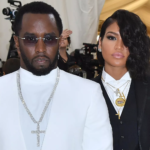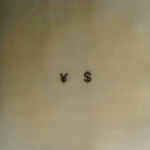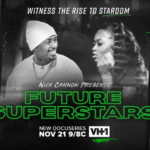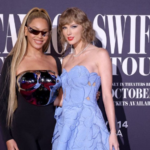
Jay-Z stopped by to promote his new book, ‘Decoded,’ and Howard immediately began asking about his lavish lifestyle. Jay said he lived in a small apartment in Tribeca and wasn’t an ‘investment’ art buyer:
“I try to buy things that resonate with me. I have everything from Warhol to Tim Noble and Sue Webster.” Later, Jay-Z bristled when Howard suggested that he had 12 bodyguards–he and Beyonce only employ two: “I don’t want people to think we travel with an entourage.”
JAY-Z ON BEYONCE AND ‘THE BABY’
Howard asked why Jay was so secretive about his private life with Beyonce, so Jay explained: “Everyone knows we’re married. I’d just don’t discuss it because it’s a part of my life that I’d rather keep private. You need part of that. When you’re whole life is played out in front of everybody, you need–for your sanity–parts that are just yours.” Jay said he hoped people would leave the topic alone in general: “I really sit back and wonder when people are going to stop.” Robin asked if they’d soon be having a child, but Jay just told her to ignore the rumors: “I don’t think Newsday is going to know before my grandmother.”
WHAT OPRAH DOESN’T GET
Howard asked about his Oprah interview, so Jay explained that Oprah had difficulty understanding hip-hop: “I knew we came up in different eras. So for her, the n-word has different meaning…our generation, we took that word and turned it into a term of endearment.” Jay said he didn’t support Oprah’s ‘no n-word’ policy: “People give words power…if we take [certain] words off the table, the words just change. Not the attitude.”
HE’S GOT A MILLION THERAPISTS
Jay said a lot of his anger came from the time his father left, though he should’ve seen the split coming: “Our house was the party house. We had a huge record collection. There were little hints, like my Mom and my Dad had their names on their records.” After he was successful, Jay tried to set up a meeting to reconcile their issues, but his father didn’t show up the first time. Jay consoled his mom, telling her: “We’ve seen this movie before.” Jay added that he did eventually meet his father, only to have his father die from an illness a few months later.
Howard thought Jay’s father would’ve at least shown up to beg for money, but Jay appreciated that part: “[It] made me respect him in an odd way.” Jay said he’s rarely approached by people from his past who want money, as he has a loyal buffer zone: “My immediate family is so protective.” Any issue or family conflict he has goes right into his art: “I got a million therapists.”
CAN’T KNOCK THE HUSTLE
Jay told Howard that he’d turned to rap because he had trouble identifing with popular black musicians like Prince and Michael Jackson: “They were so far removed from who we were everyday…we were telling stories of things that happened yesterday.” He became the voice of hustlers, those who were “figuring out a way to make good for yourself in the society…anybody who has the drive to make something happen.”
Jay said his success as a crack dealer (“Incredible. Not the best, but I was pretty good.”) taught him that there was an untapped audience for his music: “I knew there was a generation of kids that went through what I went through that the record companies didn’t understand.” A hustler’s sense is a sense for business: “I could be Bill Gates. I could be Warren Buffett. What separates us two is opportunity.”
IS HE STILL HOOD?
Howard wondered if Jay still felt ‘hood’ or suffered from a kind of survivor’s guilt, so Jay explained: “I try to stay attached with the culture with everything I do. It’s very difficult, but I know where that comes from…you don’t have to be sitting on a bench in Marcy Projects to represent the culture.” Jay said his past will always link him with his listeners: “I’m still in touch in with those emotions and feelings.”
JAY-Z’S MEETING WITH OBAMA
Jay told Howard he was a big Obama supporter, in part because of his travels: “I’ve watched the feeling toward America change.” Jay first met Obama before he won the presidency: “We talked about normal things. We talked about music. We talked about neighborhoods. We talked about aspirations. We talked about language in music. We just talked about a bunch of different things. He’s a very comforting soul. Immediately when you sit down–and again, I sat down as myself, but he [also] sat down as himself.”

![Da Brat Marries Judy Dupart on 2.22.22 [PHOTOS]](https://hiphopucit.com/wp-content/uploads/2022/02/1645669184565-440x264.jpeg)
![Drake Reveals Photos of His Son Adonis [Photos]](https://hiphopucit.com/wp-content/uploads/2020/03/Drake-and-on-Adonis-HHUCIT.jpg)
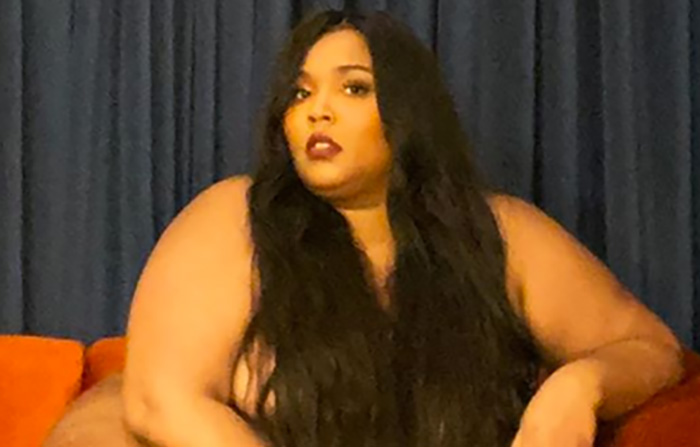
![Young Thug Feat. Drake Drop – “Oh U Went” [NEW VIDEO]](https://hiphopucit.com/wp-content/uploads/2023/07/Young-Thug-and-Drake-1014x570-1-440x264.png)
![Latto Feat. Cardi B – “Put It On Da Floor Again” [NEW VIDEO]](https://hiphopucit.com/wp-content/uploads/2023/06/latto-cardi-b-1014x570-1-440x264.jpg)
![Gucci Mane Feat. Lil Baby – “Bluffin” [NEW VIDEO]](https://hiphopucit.com/wp-content/uploads/2023/06/gucci-mane-lil-baby-bluffin-video-440x264.webp)




